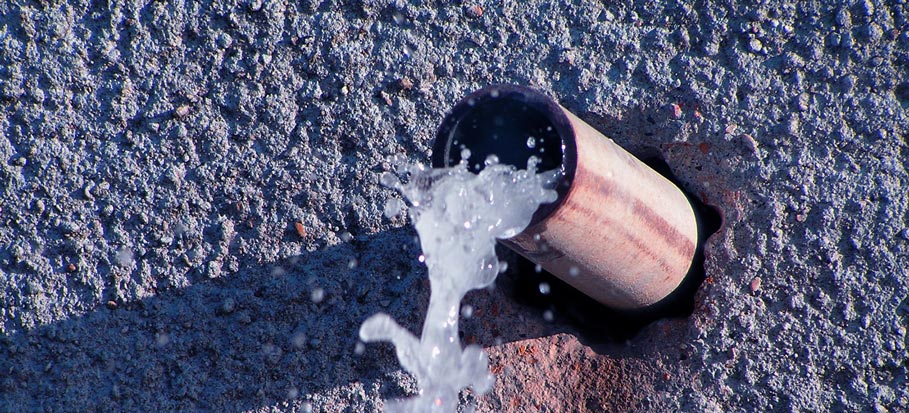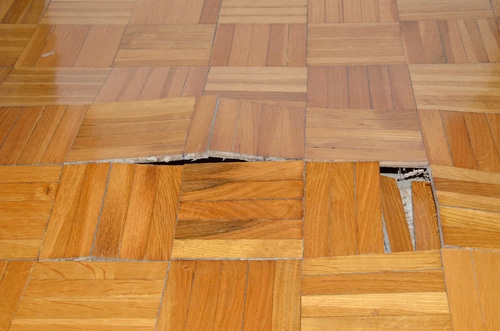We have found the article relating to Hacks to detect leaks directly below on the web and reckoned it made good sense to relate it with you in this article.

Early discovery of leaking water lines can alleviate a potential catastrophe. Some little water leaks may not be noticeable.
1. Examine the Water Meter
Checking it is a surefire method that helps you uncover leakages. If it moves, that indicates a fast-moving leak. This means you may have a slow-moving leakage that can even be below ground.
2. Examine Water Consumption
Analyze your water expenses as well as track your water intake. As the one paying it, you ought to discover if there are any type of discrepancies. If you detect sudden changes, regardless of your consumption coinciding, it implies that you have leakages in your plumbing system. Keep in mind, your water costs must fall under the very same range every month. An unexpected spike in your bill suggests a fast-moving leak.
Meanwhile, a steady rise on a monthly basis, despite having the very same habits, reveals you have a slow leakage that's additionally gradually rising. Call a plumber to completely examine your residential or commercial property, specifically if you feel a cozy area on your floor with piping underneath.
3. Do a Food Coloring Examination
When it comes to water consumption, 30% comes from commodes. If the shade somehow infiltrates your dish throughout that time without flushing, there's a leak in between the storage tank and dish.
4. Asses Outside Lines
Do not forget to check your outside water lines also. Test spigots by attaching a garden hose pipe. Should water seep out of the connection, you have a loosened rubber gasket. Replace this as well as guarantee all links are tight. If you have actually obtained a lawn sprinkler, it will certainly help get it properly analyzed and also kept yearly. One small leakage can lose lots of water and also increase your water bill.
5. Evaluate and also Examine the Circumstance
House owners should make it a behavior to check under the sink counters and also inside cupboards for any kind of bad odor or mold development. These two red flags indicate a leak so punctual interest is called for. Doing routine examinations, even bi-annually, can conserve you from a significant trouble.
Examine for stainings as well as weakening as a lot of devices and pipelines have a life expectancy. If you presume dripping water lines in your plumbing system, don't wait for it to rise.
Early discovery of leaking water lines can alleviate a prospective calamity. Some tiny water leaks might not be noticeable. Examining it is a surefire method that assists you uncover leakages. One little leakage can waste lots of water and spike your water bill.
If you think leaking water lines in your plumbing system, don't wait for it to escalate.
5 Signs that Your Home Has a Hidden Leak
Your water bill is unusually high without explanation
Generally, your water bill tends to stay consistent throughout the year as long as the same number of people live in your household year round. The bill might be higher during certain times of the year, such as summer, when your lawn may require more watering than it does in cooler months. However, if you notice a rise in your water bill that you can’t explain, it’s an indicator that there’s a hidden leak somewhere in your home.
You hear running water
One of the biggest signs that you have a water leak is the sound of rushing water when no plumbing fixtures are on and when no water-using appliances are running. If you hear running water in your walls when no water is being used anywhere in your home, locate your home’s main water shut-off valve, shut off your water supply, and contact a plumber at once.
Your home smells musty
Hidden leaks often occur in dark spaces, such as behind walls or under carpeting. Incidentally, darkness and moisture can create an ideal breeding environment for mold or mildew. If you start to smell mildew or the scent of rotting wood or stagnant water around your home, it’s a fair bet that a leak is the culprit.
You find wet spots around your home
The wet spots usually show up as moist areas in your carpeting. If your home has a basement level, puddles on the floor could indicate a slab leak. Outside, unexplainable puddles or lush, green patches in your yard often mean that there’s a leak in your sewer line or main water line.
You have stains, bubbles, or condensation on your walls/ceiling
Stains or condensation on your walls or ceiling are both major signs of a hidden leak. Also, drywall (AKA. sheetrock) is very absorbent, and as it takes on more water from a leak behind a wall, it will start to bubble, swell, or warp. If you see this happening in your home, don’t wait to contact a plumber before the water damage spreads.
https://www.ezflowplumbingaz.com/blog/2019/june/5-signs-that-your-home-has-a-hidden-leak/

As a devoted person who reads on Leaking water lines, I was thinking sharing that excerpt was a good thing. Appreciated our blog? Please share it. Let other people locate it. Many thanks for going through it.
Comments on “Exactly how to Find and Fixing Water Leaks-- A Comprehensive Guide”